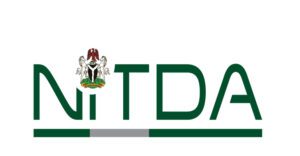ID4D advocates proper citizens’ identifications
By Solomon Odole Musa
The Nigeria Digital Identity for Development project (Nigeria ID4D) is seeking proper identification of Nigerian citizens towards ensuring that no one is excluded from basic developmental services.
This was disclosed at a 2-day Stakeholders engagement workshop for establishing an inclusive enrolment system and effective feedback mechanism for the ID4D project held in Abuja on Wednesday and Thursday.
In his presentation, Technical Team Lead, DID4D Project, Olawale Popoola, said a nation cannot truly be a sovereign state if it does not know or have a unique way to identify its citizens, adding that Government knowledge of its people(citizens and residents) is fundamental to planning governance, fiscal management, accountability, security among others.
According to him, an estimated one billion people globally lack government-recognized proof of identity; Nigeria’s existing foundational ID systems, including the national ID and civil registration (CR) systems, suffer from low coverage across the population.
“Over 13 government agencies and at least three state agencies offer ID services in Nigeria. Only 32 percent of individuals have a National Identity Number (NIN), while 43 percent of new births are registered in the Civil Registry.
“The gap in ID coverage disproportionately affects women and other marginalized and vulnerable groups.There is need to foster inclusion to ensure everyone can obtain the NIN.” Popoola said.
“There is a need to understand the barriers faced by the vulnerable and marginalized groups, the crucial feedback from this engagement shall be mainstreamed into the new entitlement model, the new model will include a differentiated approach targeted at facilitating access for vulnerable and marginalized groups.
“To achieve an inclusive and robust system under the DID4D project, establishing a fundamental ID is the first step to empowering people and facilitating access to basic government services.
“Without proper identity, people are excluded from basic services that provide foundation for support.
In his earlier remarks, the ID4D coordinator, Mr. Solomon Odole Musa said The Digital ID4D is a Nigerian project, jointly funded by the World Bank, European Investment Bank, and the French Development Agency.
He added that the project is designed, following an ecosystem model, and not limited to any single organisation. It therefore involves different agencies of the government, the private sector and of course the civil society.
“The project has made adequate provisions for financing institutional Capacity development, aimed at building trust and credibility within the country’s ID ecosystem.
“Since it became effective in December 2021, Nigeria ID4D had sought to address the pervasive fragmentation of the Nigerian identification ecosystem, with no fewer than 13 public institutions providing some form of identification services; inadequate infrastructure at the National Identity Management Commission that poses a risk to the continuous enrolment of people, notably women, youth and persons living with disability.
“The project has also initiated steps towards strengthening the legal framework on identification and data in Nigeria. Addressing the legal and a legislative framework is key at this time. Enactment of a data protection law and amendment of some other existing laws, such as the NIMC Act are important to our operations.
“The project had begun engagement with the NPC for areas of support, including digitizing the registration of births and deaths, capacity building and a review of their legal and institutional frameworks. The project has elaborate plans for the engagement of civil society in Nigeria.” Atta remarked.




